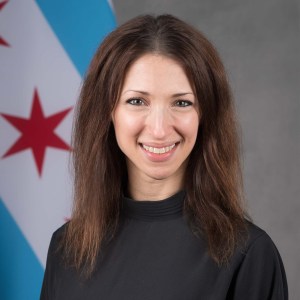Recent disclosures about four Special Operations Section SOS officers being arrested for their “on the job activities” brings back memories. The memories are of the elite gangs units the CPD had in place to combat gangs, drugs and guns. Those units were closed down because Officer Joseph Miedzianowski was uncovered to be using his position as a an officer to facilitate his illegal behavior. 

Once again, we have a high profile incident with the “special units” within the CPD. Once again, we have the same rational to how this was allowed to occur ? “a few bad apples.” When appearing on television Superintendent Phil Cline talks of swift action to stop the abuse and reforms that will be put into place to prevent a reoccurrence. Every superintendent in Chicago’s history has mumbled the same meaningless line to assure the public that the brass is in control when they know they are not. Such promises continue to be made without any need to live up to the rhetoric because our government officials fail to force the police department to purge its ranks of abusive members.
People in Chicago have allowed Cline to unleash an undisciplined and ruthless group of officers upon the streets of Chicago with very little to no oversight. They get less oversight then a regular beat officer. A Sergeant in the CPD needs only to see each officer under his command once a night. Should we not question the level of oversight a special operation’s officer gets while doing his duty? In November of 2005, I spent a night within a CPD district station observing the work of a watch commander who worked the overnight shift. During this night the SOS was operating within the district without notifying the watch commander; this was against protocol. The SOS are required to notify the watch commander, who was a captain, that they were operating in his area so that the patrol officers were aware that the SOS may need assistance. The Watch Commander and I became aware of SOS presence when the SOS officers where in a foot chase with an armed suspect and the SOS turned their radios to the district’s frequency. The Captain immediately yelled to the desk Sargent that everyone was going to get a “CR,” a complaint registry. This meant that all the officers involved were going to have to answer for their actions with the brass for failing to follow protocol.
In the end, they eventually came to the Captain’s office and apologized for their actions and he let them off. After reading about the SOS officers who were being investigated, I wondered if I had witnessed the end results of one of their illegal break-ins? Had the Captain who let the SOS off the hook actually assisted the 4 officers currently under indictment in committing a felony? Did his inaction actually qualify the Captain as a conspirator to the four officer’s long history of crimes? Isn’t it at this very point when those in positions of power within the CPD like this Captain should have reported the behavior to his superiors? Should this Captain be added to the list of “bad apples” or is this situation proof of something wrong deeper within the patterns and practices of the agency?
From what I witnessed during my time observing the Captain in his duties, it is clear that the CPD does not have a oversight process in place that motivates officers to report the bad actions of other officers. This should make us all feel a little queasy about the actions of the other 296 officers in the unit. From the pictures I have seen in the various daily papers I do not think that the officers arrested to this point are one of the two that walked into the Captain’s office that night. This should also send out a warning about the bad apples theory. Officers Jerome Finnigan, 43; Thomas Sherry, 32; Carl Suchocki, 32, and Keith Herrera, 28.



